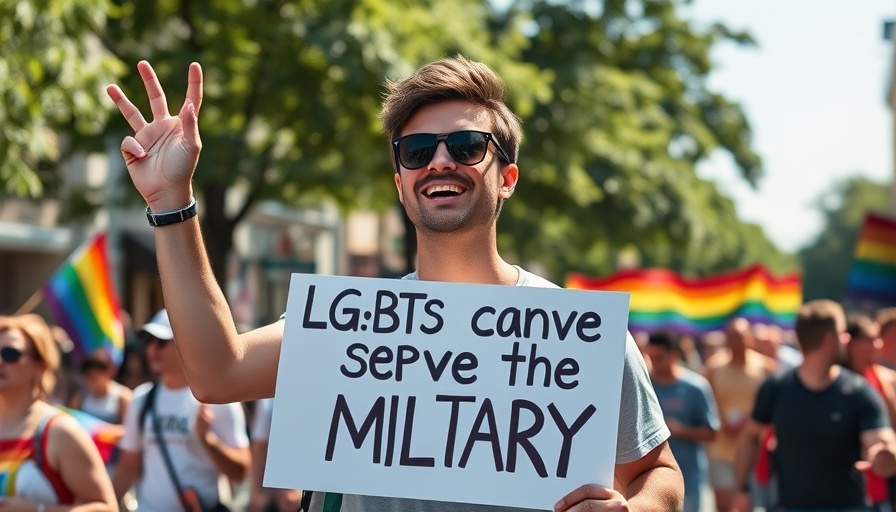
San Diego Pride Faces Controversy as Military Drops Out
This year, a pivotal moment in San Diego's Pride history was marked by the unexpected decision of the Military Department to withdraw from the Pride Parade. For the first time since 2011, when local military personnel proudly marched as part of the event, there will be no military contingent leading the parade. When addressing this decision, Lauren Henson, the department chair, identified crucial concerns primarily rooted in participant safety.
The withdrawal was influenced by a series of troubling factors affecting the military community, including associations with immigration enforcement and alarming legislative developments like the transgender military ban. Henson explained, "Service members are scared," reflecting the heightened risk perception among those expected to participate. The lack of public support from San Diego Pride, especially in light of these challenges, has left many former and current military members feeling disheartened.
Need for Accountability and Leadership in Advocacy
The silence from the Pride leadership in response to critical decisions, such as the Supreme Court's rulings and the continued stigma surrounding LGBTQ+ service members, has not gone unnoticed. Clay Kilpatrick, a former chair of the military department, articulated his discontent: "Pride has abdicated its leadership role as an advocacy group." The absence of meaningful discourse regarding these issues means many are seeking alternatives outside the Pride organization.
Furthermore, the controversy surrounding artist Kehlani’s performance at Pride has compounded the organizational struggles within the community, raising questions about the effectiveness of current LGBTQ+ advocacy efforts. Many believe that a more collaborative leadership model is essential for the success of future Pride events.
Community Response and Future Perspectives
With the military contingent's exit, the challenge remains for San Diego Pride to rekindle the community's trust and sense of belonging. Kilpatrick's sentiments resonate with many who feel their contributions are minimized or exploited. In a year marked by significant anti-LGBTQ+ sentiment nationally, it is vital that local organizations rally not just to celebrate but also to protect every individual's right to participate in Pride.
As San Diego continues to navigate these complexities, the hope remains that both the military department and Pride can come together, evolve, and ensure that safety and representation are prioritized, fostering a climate where all community voices are heard.
 Add Row
Add Row  Add
Add 




Write A Comment